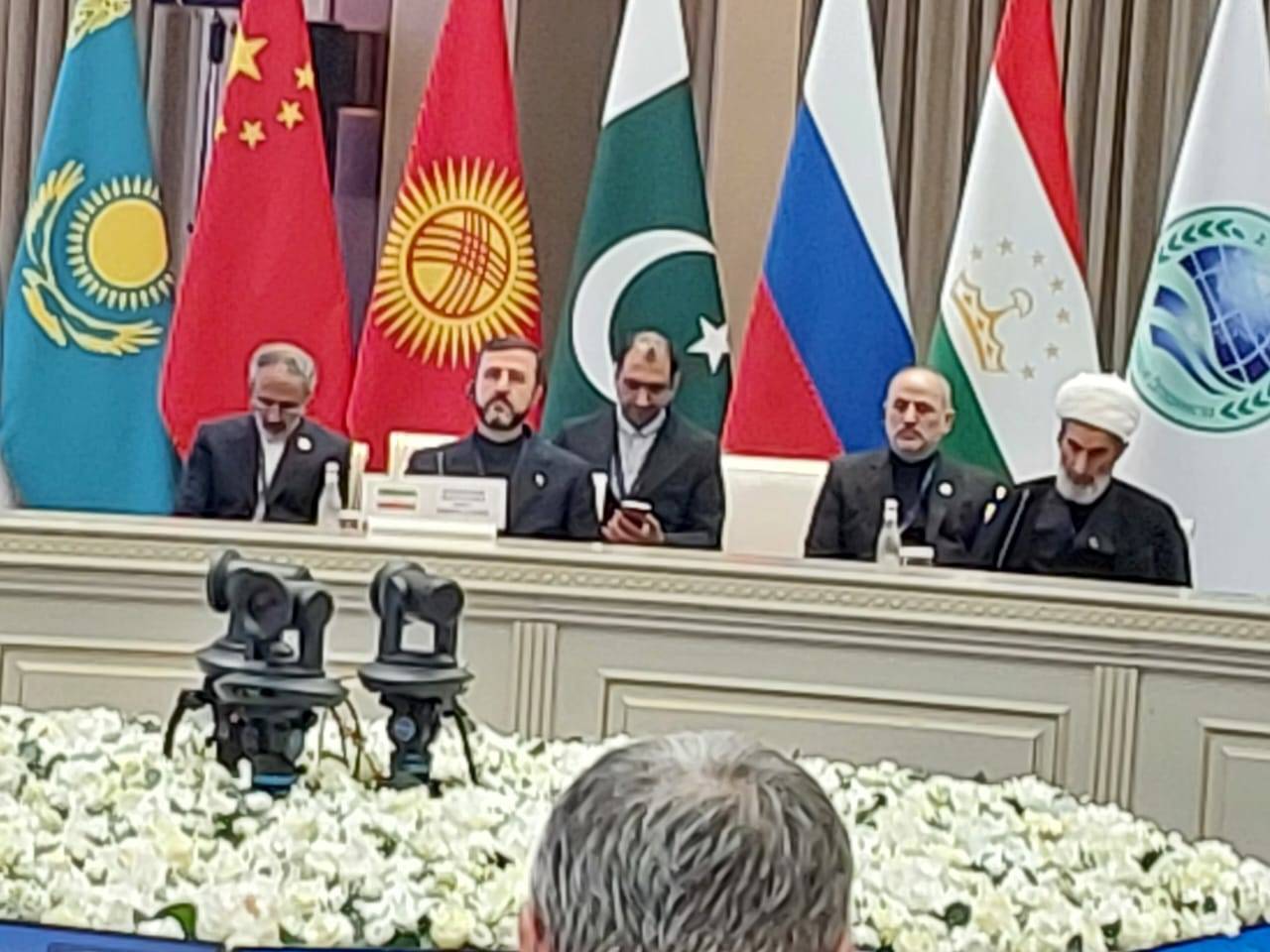HCHR_Kazem Gharibabadi, the Vice President of the Judiciary for International Affairs and the Secretary General of the High Council for Human Rights, said at the closing ceremony of the 19th Summit of the Heads of Judicial Systems of the Member States to the Shanghai Cooperation Organization: “This meeting offered a great opportunity to discuss and review the development of legal and judicial cooperation and exchange experiences between judicial systems of member states”.
Smartening judicial processes is one of the priorities in the agenda of the judiciary
Gharibabadi further stated: “The judicial system of the Islamic Republic of Iran, which includes the Supreme Court, the Attorney General's Office, the Administrative Court of Justice, 31 provincial courts, 11 legal and judicial organizations and centers, 13 thousand judges and 100 thousand employees, has good experiences in various judicial fields and administration of justice. The Judiciary of the Islamic Republic of Iran is an independent authority that supports individual and social rights and is responsible for realizing justice according to the standards of Islamic law. Handling and issuing judgments, restoring public rights, expanding justice and legitimate freedoms and monitoring the proper implementation of laws, detecting crimes and prosecuting and punishing criminals, and implementing the regulations of the Islamic penal code and taking appropriate measures to prevent the occurrence of crimes and reform criminals, are among other duties of the judiciary”.
The Vice President of the Judiciary for International Affairs added: “The roadmap for Iran's judicial system to achieve its goals is the ‘The Document of Transformation and Development of the Judiciary’, which was updated about 2 months ago, and its new version was announced to be implemented for 3 years. Strengthening the smart approach and technological perspective, using the useful experiences of other countries in reducing the delay of proceedings through the optimal use of new technologies, promoting data-based judicial governance and intelligent monitoring, identifying and removing corrupt structures, de-judging claims with non-judicial nature, conducting monitoring intelligent systems on judicial officers and their performance, evaluating the performance of judges and clarifying judicial processes and opinions and creating new platforms to facilitate people's communication with the judicial system through public reporting systems, paying special attention to the revival of public rights and the expansion of justice and legitimate freedoms and crime prevention are among the most important features of this document”.

The judicial systems of the member states of the Shanghai Cooperation Organization should exchange their experiences with each other in the framework of judicial diplomacy
Regarding the Smartening of judicial processes, Gharibabadi mentioned two things: “First, creating full-electronic files, smart application of hearing times and judicial procedures, smart referral of cases, taking into account things such as the expertise of judges and the subject of the case and the number of litigants; and second, providing the possibility of online access of judges to the databases of governing authorities, online notification of judicial notices to lawyers and clients, automatic sending of petitions and complaints, etc., which are among ways for smartening judicial proceedings.
Gharibabadi continued: “In Islam, the use of arbitration and mediation in the settlement of claims is of high importance. Therefore, the judiciary of the Islamic Republic of Iran established Dispute Resolution Councils using public participation. The approach of the judiciary to create such mechanism was the conciliation of lawsuits and creating a compromise between people and arbitration institutions to resolve disputes, which naturally increases trust in the outcome of proceedings and enables people to resolve their disputes without the need for direct intervention of the judiciary. It also leads to expanding people's participation in providing Justice.
Shanghai Cooperation Organization has actually lost a judicial colleague with the martyrdom of Ayatollah Ra’eesi
Gharibabadi also noted: “The Judiciary of the Islamic Republic of Iran has valuable experiences in relation to the above-mentioned and other legal and judicial issues, and it is ready to share its experiences and expertise to the judicial systems of the member states of the Shanghai Cooperation Organization. Also, we are ready to receive and use the experiences of the important achievements of the judiciary of the member countries. In this regard, we suggest that the judicial systems of the member states of the Shanghai Cooperation Organization adopt arrangements within the framework of ((judicial diplomacy)) in areas of interest, such as combating corruption, combating cross-border and organized crimes, extradition of criminals, prevention of the occurrence of crime resulting from smartening judicial structures, reduction of trial delays, reduction of criminal cases, reduction of the criminal population of prisons, as well as alternative punishments, to cooperate and interact closely with each other and exchange their experiences”.
The Vice President of the Judiciary added: “Although the Shanghai Cooperation Organization is a political, economic and security organization, it is clear that judicial and legal cooperation will play an essential role in the consolidation and development of these relations. Once again, while inviting colleagues in the judicial systems of the member countries of the Shanghai Cooperation Organization to play a decisive role against international crimes, we announce the readiness of the judicial system of the Islamic Republic of Iran to develop cooperation”.
At the end, Gharibabadi once again honored the memory of the martyrs of Iran's service and said: “Martyr Dr. Ayatollah Raisi was also a judicial colleague, and he used to be the Head of I.R of Iran's Judiciary before he became the President. The Shanghai Judicial Council has indeed lost a judicial colleague.